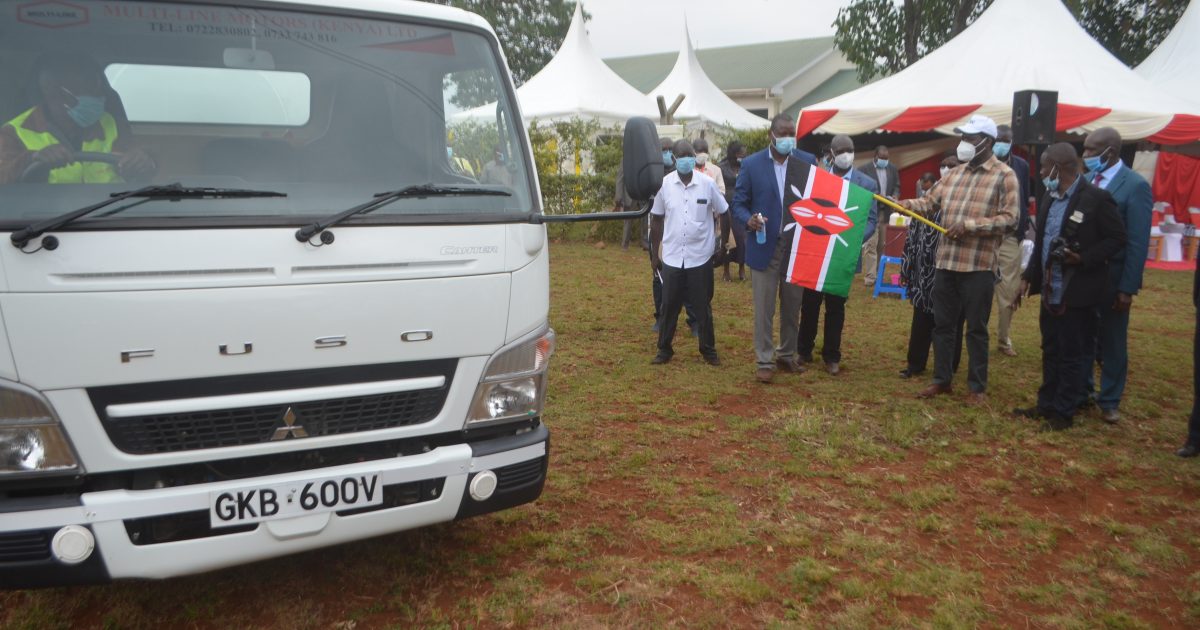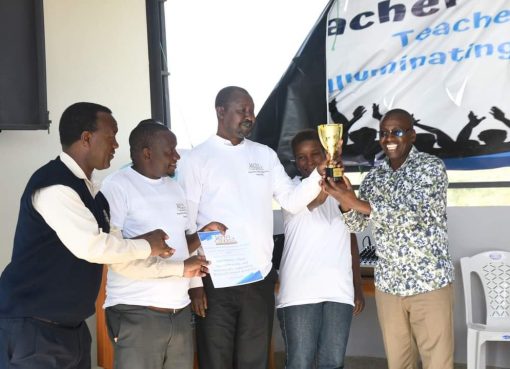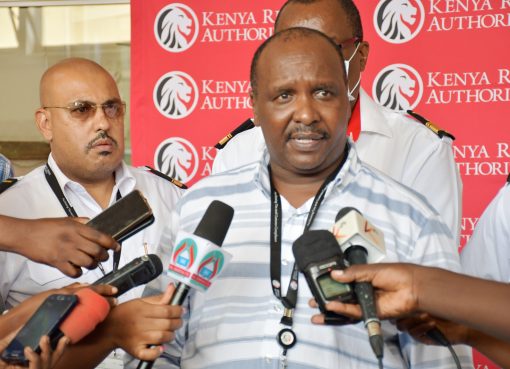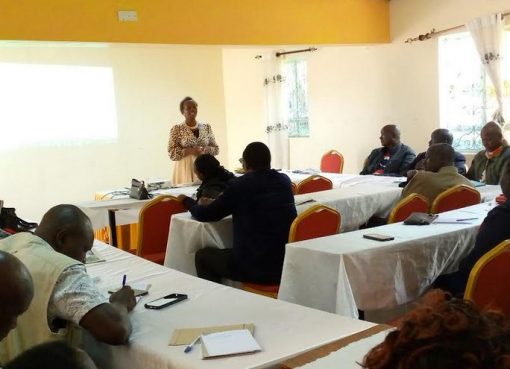The government-funded Sh500 million dairy goat Artificial Insemination (AI) center at animal health and industry-training institute (A.H.I.T.I) Ndomba in Kutus, Kirinyaga County is almost complete.
While touring the project, Agriculture Cabinet Secretary (CS), Peter Munya, who also distributed two lorries for the supply of Nitrogen gas said, the center is the first in Africa and is aimed at improving the dairy sector in the country.
Munya said the move is in line with the President’s Big Four agenda of Food Security, Universal Health Care, Manufacturing, and Affordable Housing.
“Already a nitrogen plant for semen storage is operational at the institute which the two lorries will help deliver to the farmers in Mt Kenya region. The station compromises of a laboratory for semen production,” Munya said.
He said the project estimated to cost Sh500 million is at the final stage and maybe completed early next year and start producing quality semen to the farmers.
The CS said upon completion, the center, initiated in 2014 with the support of the World Bank through the Eastern Africa Agricultural Productivity Project would increase the productivity of the dairy goats from an average of 1 liter to 5 litres per day.
Munya said due to reducing land sizes, the dairy goat production holds the promise that farming communities can still access milk and meat for their sustenance, as well as income from the sale of these products and breeding stock.
”It’s the commitment of the government to deliver on the Big 4 Agenda of 100% food and nutrition security and is keen on enabling farmers to access not only quality seeds but also breeds,” he said.
Munya said the government had purchased full A.I kit at Sh56, 000 each to equip A.I technicians to improve the dairy industry in the country and empower the youth, as most of the beneficiaries are young people.
He called on the Director of Veterinary and County Governments to monitor how the technicians use the kits, adding that the move is aimed at reducing the cost of A.I service to the farmer.
Munya who was with a high-powered delegation from the agriculture ministry said his ministry would continue empowering the animal genetic resource center.
”We are looking forward to increasing goat milk production from the current 1 liter to 5 liters in a day, while dairy cattle farmers will be able to produce an average of 20 liters daily from the current 10 liters,” he said.
The CS also said the government is constructing an embryo transfer plant at Mariba farm in Meru. He also added that in the next financial year the government would purchase an embryo-sexing machine for high-quality breeds.
“Dairy farmers in Mt Kenya region are already enjoying subsidized cost for Artificial Insemination (AI) services after a multimillion liquid Nitrogen gas plant was put into operation three years ago,” said Munya.
Munya said that previously farmers were required to pay between Sh1, 000 to 5, 000 which kept the services out of reach for many of the farmers. He said the cost has been reduced to as much as Sh500 to enable all the categories of farmers to benefit.
“Service providers have been charging farmers exorbitant fees per animal due to the long distance between the county and Kabete in Kiambu, where the crucial gas in AI matters has been centrally produced since Independence,” he said.
Munya was speaking at the Animal Health and Industry Training Institute (AHITI), Ndomba where the project has been put up, adding that the project will give the much-required impetus to the area Dairy Sector due to easy and cheaper access to certified animal semen.
The Sh200 million Nitrogen plants produce 20 liters of the Nitrogen gas per hour and have benefited farmers in Nyeri, Muranga, Embu, and lower parts of Tharaka-Nithi counties.
“We will be able to produce enough goat semen for farmers in the country and still have surplus for export within the East African Region from the Ndomba plant alone,” Munya said.
By Irungu Mwangi





